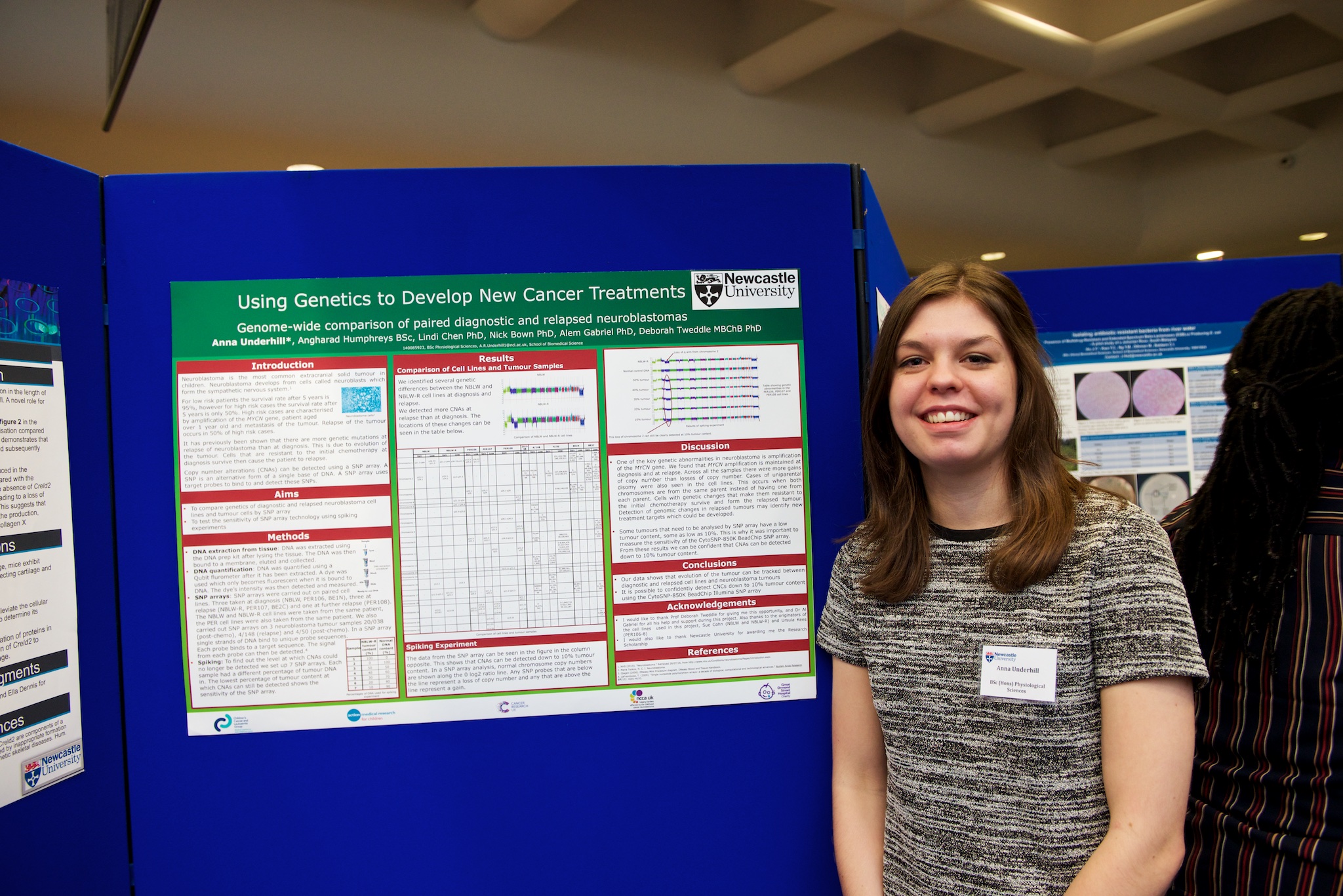2016 Participants
 Anna Underhill
Anna Underhill
- BSc (Hons) Physiological Sciences
- A genome wide comparison of paired diagnostic and relapsed neuroblastomas
Neuroblastoma is the second most common solid tumour in children, with a 50% relapse rate in high risk cases. Neuroblastoma affects around 100 children every year in the UK. Genetic abnormalities are important in cancer as they determine how a tumour responds to treatment. During chemotherapy cells may gain more abnormalities allowing them to survive chemotherapy, resulting in relapse. A SNP array was used to detect SNPs in DNA taken from neuroblastoma cells at diagnosis and relapse. A SNP is an alternative form of a single base of DNA. To test the sensitivity of the Illumina SNP array seven SNP arrays were ran with different percentages of tumour content. This showed that SNP arrays can detect abnormalities down to 10% tumour content. The SNP array detected more abnormalities in relapsed samples compared to in diagnostic samples. Results from the SNP arrays will identify treatment targets when a patient has relapsed.
Funding source: Newcastle University
Supervisor: Prof Deborah A Tweddle
